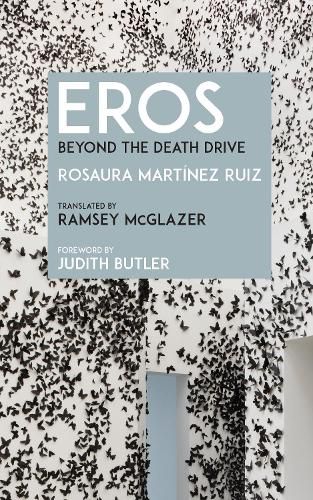Readings Newsletter
Become a Readings Member to make your shopping experience even easier.
Sign in or sign up for free!
You’re not far away from qualifying for FREE standard shipping within Australia
You’ve qualified for FREE standard shipping within Australia
The cart is loading…






Eros considers a promise left unfulfilled in Sigmund Freud’s Beyond the Pleasure Principle. Rosaura Martinez Ruiz argues that when the pleasure principle comes into contact with the death drive (the human tendency toward aggression or cruelty), the psyche can take detours that, without going beyond the limit of the pleasure principle, can nevertheless defer it. Eros reflects on these deviations of the pleasure principle, in the political sphere and in the intimate realm.
Following these erotic paths, Martinez argues that the forces of the death drive can only be resisted if resistance is understood as an ongoing process. In such an effort, erotic action and the construction of pathways for sublimation are never-ending ethical and political tasks. We know that these tasks cannot be finally accomplished, yet they remain imperative and undeniably urgent.
If psychoanalysis and deconstruction teach us that the death drive is insurmountable, through aesthetic creation and political action we can nevertheless delay, defer, and postpone it. Calling for the formation and maintenance of a community of mourning duelists, this book seeks to imagine and affirm the kind of erotic battalion that might yet be mobilized against injustice. This battalion’s mourning, Martinez argues, must be ongoing, open-ended, combative, and tenaciously committed to the complexity of ethical and political life.
$9.00 standard shipping within Australia
FREE standard shipping within Australia for orders over $100.00
Express & International shipping calculated at checkout
Eros considers a promise left unfulfilled in Sigmund Freud’s Beyond the Pleasure Principle. Rosaura Martinez Ruiz argues that when the pleasure principle comes into contact with the death drive (the human tendency toward aggression or cruelty), the psyche can take detours that, without going beyond the limit of the pleasure principle, can nevertheless defer it. Eros reflects on these deviations of the pleasure principle, in the political sphere and in the intimate realm.
Following these erotic paths, Martinez argues that the forces of the death drive can only be resisted if resistance is understood as an ongoing process. In such an effort, erotic action and the construction of pathways for sublimation are never-ending ethical and political tasks. We know that these tasks cannot be finally accomplished, yet they remain imperative and undeniably urgent.
If psychoanalysis and deconstruction teach us that the death drive is insurmountable, through aesthetic creation and political action we can nevertheless delay, defer, and postpone it. Calling for the formation and maintenance of a community of mourning duelists, this book seeks to imagine and affirm the kind of erotic battalion that might yet be mobilized against injustice. This battalion’s mourning, Martinez argues, must be ongoing, open-ended, combative, and tenaciously committed to the complexity of ethical and political life.